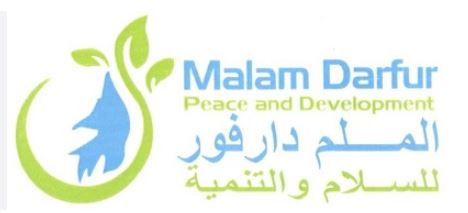The Malam Darfur Organization for Peace and Development on Tuesday concluded a community dialogue and peace conference in Zalingei, the capital of Sudan’s Central Darfur State.
The conference was organized under the theme “Activating Civil Society Organizations and Local Administration.”
The meeting included a series of discussion sessions and workshops which culminated in a general conference where recommendations revolving around the challenging issues of peace and community security, livelihood opportunities, women and children, health and environment, youth, and education were reviewed.
According to the organizers, the conference’s recommendations will be actioned into programs for the Malam Darfur Organization for Peace and Development and other humanitarian organizations in the region.
Regarding health issues, Ahmed Abbas, one of the conference participants, highlighted the problem of overcrowding in the town and the accumulation of waste and war debris which pose health risks and disasters.
“This situation necessitates environmental sanitation programs and enhancing health conditions by establishing new health centers and providing medicines because Zalingei suffers from endemic diseases such as malaria and diarrheal illnesses,” he said. “The conference recommended establishing a primary healthcare program through mobile clinics which can reach inner markets and city outskirts.”
Abbas added: “One of the most pressing health issues is the shortage of vaccines and we appeal to organizations to urgently provide these vaccines.”
Regarding education, an academician, Mohammed Mustafa, highlighted the collapse of education infrastructure due to the war, including the destruction of buildings, classrooms, and offices.
“The economic, humanitarian, and training problems faced by educational staff have negatively impacted educational outcomes in the state,” he stated. “There are other issues such as the lack of textbooks and the absence of diverse educational methods which have hindered educational progress. The government’s reduced role in supporting education has placed additional burdens on families and guardians.”
Mustafa called for an immediate end to the war and the restoration of infrastructure, along with teacher training and the provision of educational supplies. He proposed the designing of psychological support programs for children affected by the war and diversifying educational methods to include technical and vocational training.
For his part, Ahmed Adam Ahmed, a participant from the Malam Darfur Organization, stressed that the conference’s outcomes require significant efforts to implement on the ground.
“The community must actively participate in planning, executing, and protecting the implemented projects,” he stated. “Community members should prioritize the public interest over personal benefits from humanitarian aid to reflect a positive image of the region’s community and ensure the continued flow of support from donors and benefactors.”
Several of the participants told this publication that they hope opportunities will be provided to implement the recommendations on the ground.




